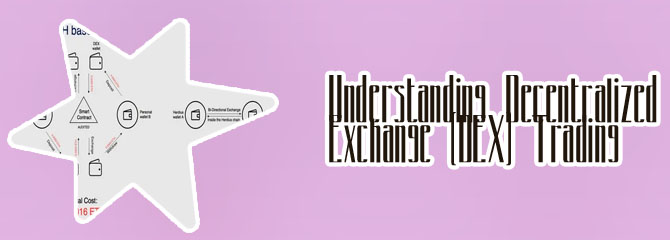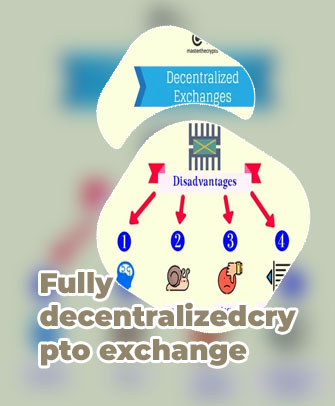
Decentralized crypto exchanges have gained popularity in recent years due to their focus on security, privacy, and eliminating the need for a central authority. As the demand for decentralized exchanges continues to grow, it's important to stay informed on the latest developments and best practices. Below are two articles that provide valuable insights and tips on how to navigate the world of decentralized crypto exchanges.
Decentralized crypto exchanges have gained popularity in recent years due to their focus on security, privacy, and eliminating the need for a central authority. As the demand for decentralized exchanges continues to grow, it's important to stay informed on the latest developments and best practices. Below are two articles that provide valuable insights and tips on how to navigate the world of decentralized crypto exchanges.
The Future of Decentralized Crypto Exchanges: Challenges and Opportunities

The rise of decentralized crypto exchanges has been a hot topic in the world of cryptocurrency. These platforms offer users more control over their assets by eliminating the need for a central authority to facilitate trades. However, despite their potential advantages, decentralized exchanges also face a number of challenges that could impact their future growth.
One of the main challenges facing decentralized exchanges is liquidity. Unlike centralized exchanges, which often have large amounts of trading volume, decentralized exchanges can struggle to attract enough users to provide liquidity for all trading pairs. This can result in wider spreads and higher slippage, making it less attractive for traders to use these platforms.
Another challenge is regulatory uncertainty. With governments around the world cracking down on cryptocurrency trading, decentralized exchanges could face increased scrutiny in the future. This could lead to restrictions on their operations or even outright bans in some jurisdictions.
Despite these challenges, decentralized exchanges also offer a number of opportunities for the future. For example, they can provide a more secure and transparent trading environment for users, as they do not rely on a single entity to hold their funds. Additionally, decentralized exchanges can help to promote financial inclusion by allowing users in countries with limited access to traditional banking services to participate in the global economy.
How to Safely Trade on Decentralized Crypto Exchanges: A Comprehensive Guide
I recently came across a comprehensive guide on how to safely trade on decentralized crypto exchanges, and I must say, it was quite enlightening. The guide covers everything from setting up a secure wallet to executing trades without the need for a centralized authority.
One of the key points emphasized in the guide is the importance of conducting thorough research before engaging in any trading activities. This includes understanding the different types of decentralized exchanges available, as well as the risks and benefits associated with each. By arming yourself with this knowledge, you can make more informed decisions and reduce the likelihood of falling victim to scams or hacks.
Additionally, the guide provides step-by-step instructions on how to protect your funds and personal information while trading on decentralized exchanges. This includes tips on using secure passwords, enabling two-factor authentication, and avoiding suspicious links or emails.
Overall, I found this guide to be incredibly valuable for anyone looking to dip their toes into the world of decentralized crypto trading. By following the tips and strategies outlined in the guide, traders can navigate this complex landscape with confidence and security.
This article is important for the topic of decentralized crypto trading as it provides practical advice and guidance on how to safely engage in trading activities on decentralized exchanges. By following the tips outlined in the guide, traders can better protect their
